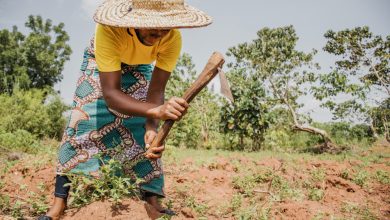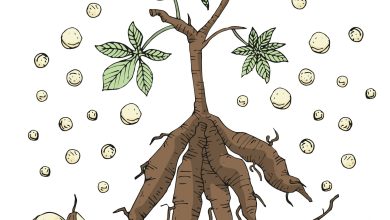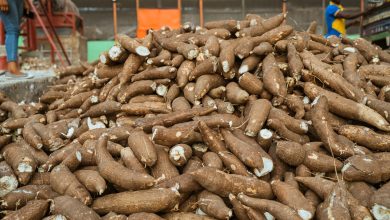The Future of Cassava Farming
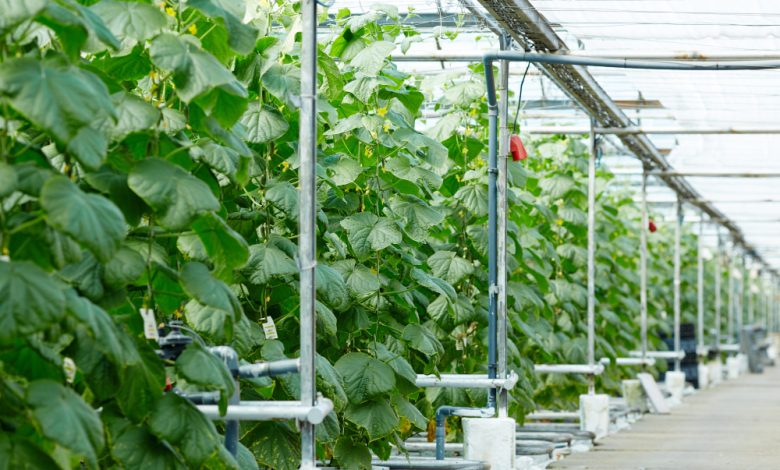
The Future of Cassava Farming: Trends and Innovations
Cassava, often called the “hidden crop” of the tropics, is gaining recognition as a powerhouse in global agriculture. This resilient root, essential for food security across Africa, Asia, and Latin America, is now at the center of a transformation driven by innovation. As demand for cassava continues to rise, so does the need for more efficient, sustainable, and scalable farming practices. Let’s explore the emerging trends and technological advancements that are shaping the future of cassava farming.
Digital Transformation in Cassava Farming

In the past, cassava farming was labor-intensive, relying heavily on manual methods. However, the landscape is shifting with the integration of digital technologies. One of the key trends is the adoption of precision agriculture. Farmers now use drones and sensors to gather real-time data on soil conditions, crop health, and moisture levels. These technologies enable data-driven decisions, allowing farmers to optimize planting schedules, detect diseases early, and improve overall crop yield.
Smart irrigation systems are another breakthrough. By leveraging the Internet of Things (IoT), these systems automatically adjust water usage based on soil moisture and weather conditions. This reduces water wastage, enhances crop growth, and minimizes labor, making farming more efficient and sustainable.
Advanced Breeding Techniques and High-Yield Varieties
One of the most promising aspects of the future of cassava farming lies in advanced breeding techniques. Traditional cassava varieties are prone to diseases like cassava mosaic virus and cassava brown streak disease, which can devastate crops. To combat this, scientists are developing new, improved varieties using genetic editing tools such as CRISPR. These high-yield, disease-resistant, and drought-tolerant cassava plants are better equipped to withstand harsh environmental conditions, ensuring more stable production.
Additionally, improved seed systems are being scaled up to provide farmers with access to quality planting materials. These seeds have a higher germination rate, better resistance to pests, and produce greater yields, directly impacting the profitability of cassava farming.
Sustainable Farming Practices
As the world faces growing concerns over climate change, sustainable farming practices are becoming essential. The adoption of agroecological methods like intercropping, crop rotation, and organic fertilization helps maintain soil health, reduce pest outbreaks, and enhance biodiversity. By integrating these methods, farmers can boost productivity while preserving the environment.
Moreover, climate-smart agriculture is taking root in cassava farming. Farmers are now using predictive analytics to forecast climate patterns and prepare for potential risks like droughts or floods. This proactive approach not only mitigates the impact of climate change but also improves the resilience of cassava farming systems, ensuring stable yields in an unpredictable environment.

Innovations in Cassava Processing and Value Addition
Processing innovations are critical to maximizing the economic benefits of cassava. Traditional methods of peeling, grating, and drying cassava are often laborious and time-consuming. However, the introduction of automated cassava processing technologies is transforming the industry. Mechanized equipment for peeling, grating, and drying significantly reduces processing time and labor costs while improving product quality.
Additionally, the diversification of cassava products is opening new revenue streams. Beyond traditional food products, cassava is being used to create value-added items such as cassava flour, bioethanol, and even bioplastics. The rising demand for gluten-free and eco-friendly products is driving this trend, making cassava an attractive ingredient for various industries.
Market Trends and Export Opportunities
The global market for cassava is expanding, driven by increased awareness of its versatility and health benefits. As consumers seek healthier, gluten-free alternatives, cassava flour is becoming a popular choice in the food industry. This trend is creating new export opportunities for cassava-producing countries, particularly in Europe and North America, where the demand for gluten-free products is growing rapidly.
To tap into these markets, cassava producers must navigate evolving trade policies and international quality standards. Efforts to streamline export processes and enhance market access are underway, with local governments and industry stakeholders collaborating to promote cassava as a valuable export commodity.
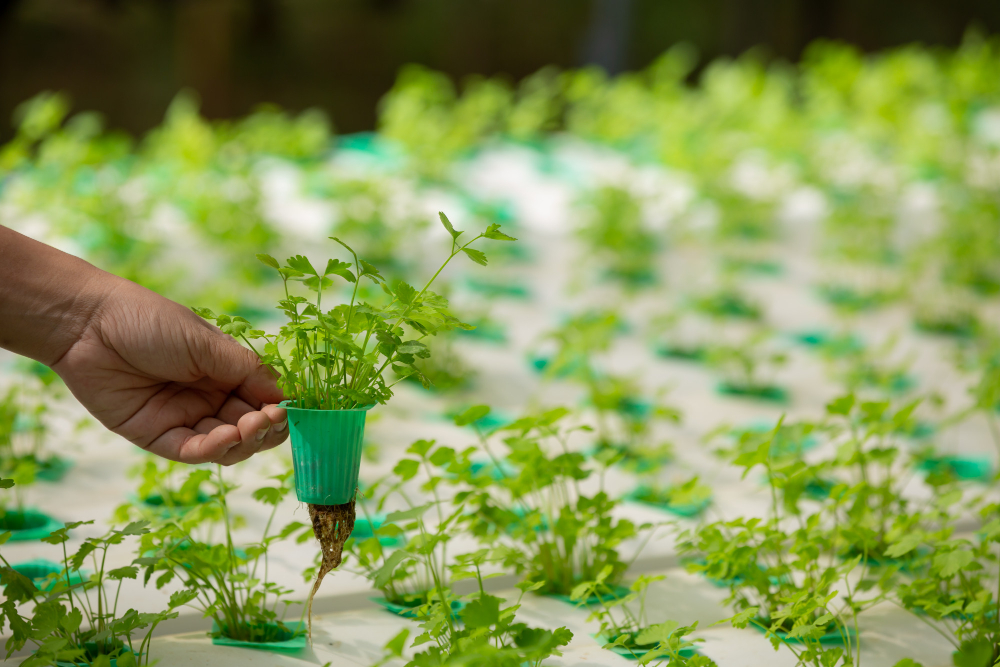
Role of AgriTech Startups and Public-Private Partnerships
The rise of AgriTech startups is a testament to the innovation potential in the cassava sector. These startups are developing solutions that address key challenges in the cassava value chain, from precision farming tools to efficient processing equipment. By introducing new technologies, they are helping to modernize cassava farming and increase its profitability.
Public-private partnerships are also playing a significant role in shaping the future of cassava farming. Collaboration between governments, research institutions, and private companies is crucial for funding research, facilitating technology adoption, and expanding market access. For example, joint initiatives have led to the development of high-yield seed varieties and the training of farmers in best practices, boosting productivity and quality across the board.
The future of cassava farming is bright, filled with promise and potential. Through digital transformation, advanced breeding techniques, sustainable practices, and innovative processing methods, cassava is poised to become a key player in global food security and economic development. By embracing these trends and innovations, stakeholders can unlock new opportunities, ensuring that cassava continues to thrive in the evolving agricultural landscape.
As we look ahead, it is clear that cassava has the potential to drive significant growth in agriculture. The commitment to innovation, sustainability, and collaboration will be the cornerstone of this transformation, paving the way for a resilient and prosperous future for cassava farming.

